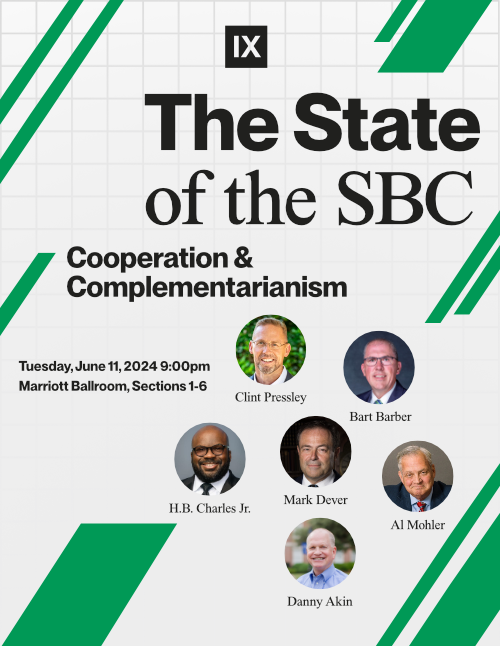Book Review: Mere Calvinism, by Jim Orrick
Jim Scott Orrick, Mere Calvinism. P&R Publishing, 2019. 219 pages.
Calvinism is cool. The TULIP is a fashionable flower these days.
Collin Hansen chronicled the emergence of the reformed resurgence nearly a decade ago in Young, Restless and Reformed. Since that time, a number of pastors have written their own works on reformed theology with many hitting the amazon carts of fellow pastors around the country. So, why another book on Calvinism? With so many treatments (both ancient and modern) of the “Five Points” currently in print, is Jim Orrick’s new book, Mere Calvinism, really worth your time? In short, absolutely—for three primary reasons.
CLARIFYING ILLUSTRATIONS
First, Orrick understands the power of word-pictures, particularly for explaining abstract theological concepts. Many books explaining Calvinism are long on exegesis and short on illustration. Of course, exegesis is foundational and essential. A book on Calvinism devoid of the right handling of the biblical text would be a sham—Orrick states as much in his introduction. But clarifying illustrations complement and enhance sound exegesis and Orrick’s book brims with helpful illustrations:
- Did you know that a broken mirror, sponge or a glass of water could help communicate a truth about total depravity?
- What can bow hunting teach us about particular redemption?
- How might bee-keeping enhance our understanding of irresistible grace?
Orrick uses relatable, everyday illustrations to put flesh on the Five Points. This book will supply pastors with a small library of them for future use. Just in reading the book, I earmarked several pages for incorporation into future sermons.
ANTICIPATING AND ANSWERING OBJECTIONS
A second strength of Mere Calvinism is the fair and thoughtful way it deals with objections raised against the Five Points. Rather than making assumptions, Orrick anticipates common questions and offers gracious and biblical responses.
- How does total depravity square with a sincere offer of the gospel to everyone?
- How do I deal with a lost loved one in light of unconditional election?
- Does God’s sovereignty really kill evangelism?
- How can particular redemption be true when words like “all” and “world” show up in so many texts discussing the atonement?
Mere Calvinism walks the reader through these objections and provides helpful, biblical clarification. While some objections receive more treatment than others, and there is some overlap across the chapters, Orrick skillfully addresses the main tensions raised in discussions concerning divine sovereignty and human responsibility. I also appreciate the candid forthrightness of the importance of submitting our understanding of God to what the Scriptures teach about him. Orrick writes:
If the Bible asserts something about God to be true, and it could not possibly be true of your God, then you have the wrong god. A persistent reluctance to submit to the plain teaching of the Scripture is a sure indication that you have not repented of your sinful resolve to determine for yourself what is good and evil. You still have the forbidden fruit in your mouth” (16).
THE JOY OF THE “WHY” AND “WHAT IF”
The third and final strength of Mere Calvinism is the way it helps readers understand the practical implications of the Five Points. Rather than treating Calvinism only as doctrines to be embraced, Orrick serves them to us as reasons to rejoice. In addition to peppering his chapters with practical applications, the concluding chapter, “What If: Less Than The Five Points” is particularly powerful. Taking his cues from the Apostle Paul in 1 Corinthians 15, Orrick explores the results of not embracing the Five Points:
- What if God is not sovereign at all? “If God i not sovereign over all . . . then future events must be uncertain. The ultimate triumph of Christ is contingent on events that may never happen (202).
- What if total depravity is not true? “If human beings are not totally depraved . . . all the pressure and responsibility of discovering what will work on sinners falls back on you and me” (204).
- What if unconditional election is not true? “If unconditional election is not true, then those of us who evangelize have no basis for any confidence that our efforts will have any effect at all” (206).
- What if limited atonement is not true? “If limited atonement is not true, then Christ’s death was something other than a substitutionary penal atonement. . . . If Jesus truly did die as a substitute for every person who has ever lived and if some of those people suffer for their sins in hell, then God is guilty of the injustice of punishing sins twice” (208).
- What if irresistible grace is not true? “If irresistible grace is not true, then Christ’s work on behalf of sinners might have been entirely without effect, since it was possible that not even one sinner would have believed in him” (210).
- What if the perseverance of the saints is not true? If God does not preserve his people . . .then no one’s salvation is secure” (211).
These reasons, among others, make this book an easy recommendation. This book would would make an excellent “go-to” resource for new members wanting to explore Calvinism. It would also be a beneficial book to read through in a discipling relationship.
Let Orrick’s book lead you to a place of peaceful confidence in God’s love for you in Christ and a more robust worship of the One who deserves all the credit in our salvation.








